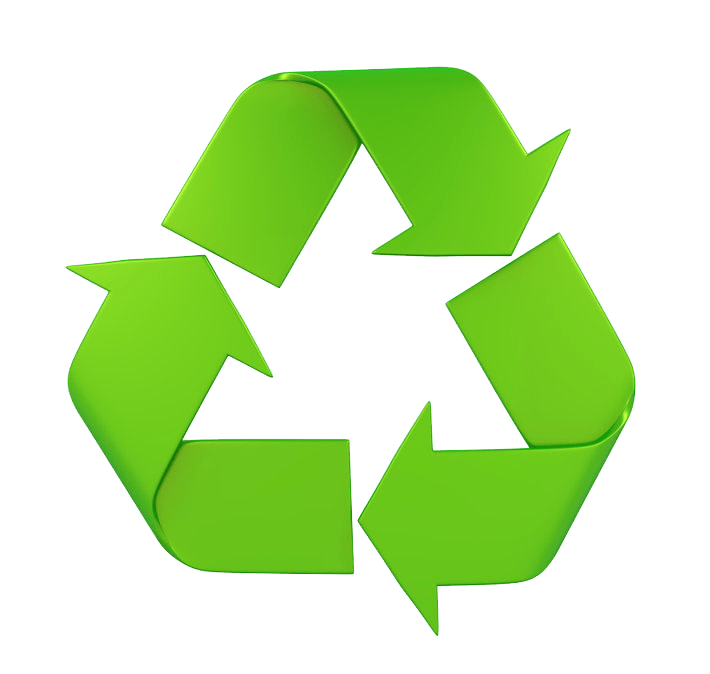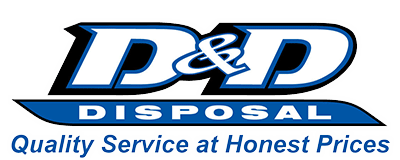NJ Recycling Laws and Junk Removal
As a New Jersey resident, you will need to get rid of some recyclables and garbage occasionally. In such instances, you need a proper understanding of the law in regard to junk removal and recycling. This helps you dispose of waste according to the law.
Doing this ensures that you are on the right side of the law, and since the law is meant to ensure protection for the environment, you will automatically be conscious of the environment. This article looks at some major NJ recycling and junk removal laws you need to know.

NJ Recycling Laws
In New Jersey, the law requires residents and businesses to recycle certain items that are determined by specific recycling areas, few statewide laws, and county legislation. Here are some things you need to know about recycling in New Jersey:
Solid Waste Regulations
Any solid waste recycling done in New Jersey must adhere to state laws. Some people may have issues with this because it entails the reuse of materials. However, it is still crucial for anyone looking to obtain a recycling permit in New Jersey to familiarize themselves with solid waste laws and regulations.
Categories of Recyclable Materials in New Jersey
The state of New Jersey has four classes in regard to recyclable materials. Class A consists of commonly recycled materials like plastic, glass, paper, and metal. Class B materials entail construction and demolition materials like asphalt and concrete. Class C materials are those compost materials usually laid out to compost over a certain amount of time. Class D materials comprise items like oil-based finishes, electronics, and batteries.
Individuals looking to obtain a recycling permit or license in the state of New Jersey must follow the required law path to access that. The permits and approvals can last for several years before the need to renew them.
Junk Removal Regulations You Should Know
- Disposing Household Garbage
You should place household garbage in a sturdy garbage container that is properly covered to ensure it does not spill or fall. Your household garbage needs to be placed out a few hours before the scheduled pick-up time to reduce any inconveniences.
- Disposing Bulk Waste
Bulk waste entails things like wood, furniture play equipment, box springs, and kitchen appliances like the microwave. This type of waste should be placed at the curb on the day scheduled for bulky waste pick up. Bulk waste should be disposed of using plastic bags and not cardboard boxes. If you are disposing of a carpet or wood, you should tie and bundle it no longer than 4 feet and no heavier than 50lbs for one bundle. Garbage entailing rock, dirt, concrete, or tree logs is not considered as bulk waste, and should thus be disposed of in another way.
- Grass and Leaf Collection
This kind of garbage should be 32 gallons or less and should be placed in biodegradable bags. During this collection, no plastic bags should be collected and the twigs and brushes are supposed to be tied and bundled no longer than 4 feet and no heavier than 50lbs per bundle.
- Corrugated Cardboard
According to New Jersey junk removal laws, any cardboard boxes should be flattened and tied in bundles of about 12 inches in height and one bundle should not be more than 25lbs. Many removal companies collect cardboard every other week.
- Mixed Paper
Mixed paper entails envelopes, coupons, magazines, notebook paper, glossy catalogs, fax paper, construction paper, color newspaper inserts, and computer paper. This kind of waste should be tied and bundled in a brown paper bag. It should then be placed at the curb and must not include other materials like cereal boxes and telephone books.
- Commingled Materials
Commingled materials entail aluminum cans, plastic bottles, and tin cans. These materials ought to be properly rinsed and placed in a firm container.
- Special Collections
Special collections mainly entail electronics such as faxes, computers, TVs, VCR, copiers, and printers. Due to their sensitive and hazardous nature, these materials ought to be collected on their own and in a special manner.
To keep New Jersey clean and everyone living here healthy, the state came up with laws regarding proper recycling and junk removal. Some of these rules and regulations entail proper disposal of household waste, bulk waste, mixed paper, corrugated cardboard, grass and leaves, electronics, and many other items. It is good to abide by the aforementioned regulations to ensure that you are not only on the right side of the law, but you are contributing positively to the proper protection of the environment.
As a New Jersey resident, you will need to get rid of some recyclables and garbage occasionally. In such instances, you need a proper understanding of the law in regard to junk removal and recycling. This helps you dispose waste according to the law. Doing this ensures that you are on the right side of the law, and since the law is meant to ensure protection for the environment, you will automatically be conscious about the environment. This article looks at some major NJ recycling and junk removal laws you need to know.
NJ Recycling Laws
In New Jersey, the law requires residents and businesses to recycle certain items that are determined by specific recycling areas, few statewide laws, and county legislation. Here are some things you need to know about recycling in New Jersey:
Solid Waste Regulations
Any solid waste recycling done in New Jersey must adhered to state laws. Some people may have issues with this because it entails the reuse of materials. However, it is still crucial for anyone looking to obtain a recycling permit in New Jersey to familiarize themselves with solid waste laws and regulations.
Categories of Recyclable Materials in New Jersey
The state of New Jersey has four classes in regards to recyclable materials. Class A consists of commonly recycled materials like plastic, glass, paper, and metal. Class B materials entail construction and demolition materials like asphalt and concrete. Class C materials are those compost materials usually laid out to compost over a certain amount of time. Class D materials comprise items like oil-based finishes, electronics, and batteries.
Individuals looking to obtain a recycling permit or license in the state of New Jersey must follow the required law path to access that. The permits and approvals can last for several years before the need to renew them.
Junk Removal Regulations You Should Know
- Disposing Household Garbage
You should place household garbage in a sturdy garbage container that is properly covered to ensure it does not spill or fall. Your household garbage needs to be placed out a few hours before the scheduled pick up time to reduce any inconveniences.
- Disposing Bulk Waste
Bulk waste entails things like wood, furniture play equipment, box springs, and kitchen appliances like the microwave. This type of waste should be placed at the curb on the day scheduled for bulky waste pick up. Bulk waste should be disposed using plastic bags and not cardboard boxes. If you are disposing a carpet or wood, you should tie and bundle it no longer than 4 feet and no heavier than 50lbs for one bundle. Garbage entailing rock, dirt, concrete, or tree logs is not considered as bulk waste, and should thus be disposed of in another way.
- Grass and Leaf Collection
This kind of garbage should be 32 gallons or less and should be placed in biodegradable bags. During this collection, no plastic bags should be collected and the twigs and brushes are supposed to be tied and bundled no longer than 4 feet and no heavier than 50lbs per bundle.
- Corrugated Cardboard
According to New Jersey junk removal laws, any cardboard boxes should be flattened and tied in bundles of about 12 inches in height and one bundle should not be more than 25lbs. Many removal companies collect cardboard every other week.
- Mixed Paper
Mixed paper entails envelopes, coupons, magazines, notebook paper, glossy catalogs, fax paper, construction paper, color newspaper inserts, and computer paper. This kind of waste should be tied and bundled in a brown paper bag. It should then be placed at the curb and must not include other materials like cereal boxes and telephone books.
- Commingled Materials
Commingled materials entail aluminum cans, plastic bottles, and tin cans. These materials ought to be properly rinsed and placed in a firm container.
- Special Collections
Special collections mainly entail electronics such as faxes, computers, TVs, VCR, copiers, and printers. Due to their sensitive and hazardous nature, these materials ought to be collected on their own and in a special manner.
To keep New Jersey clean and everyone living here healthy, the state came up with laws regarding proper recycling and junk removal. Some of these rules and regulations entail proper disposal of household waste, bulk waste, mixed paper, corrugated cardboard, grass and leaves, electronics, and many other items. It is good to abide to the aforementioned regulations to ensure that you are not only on the right side of the law, but you are contributing positively to proper protection of the environment.

